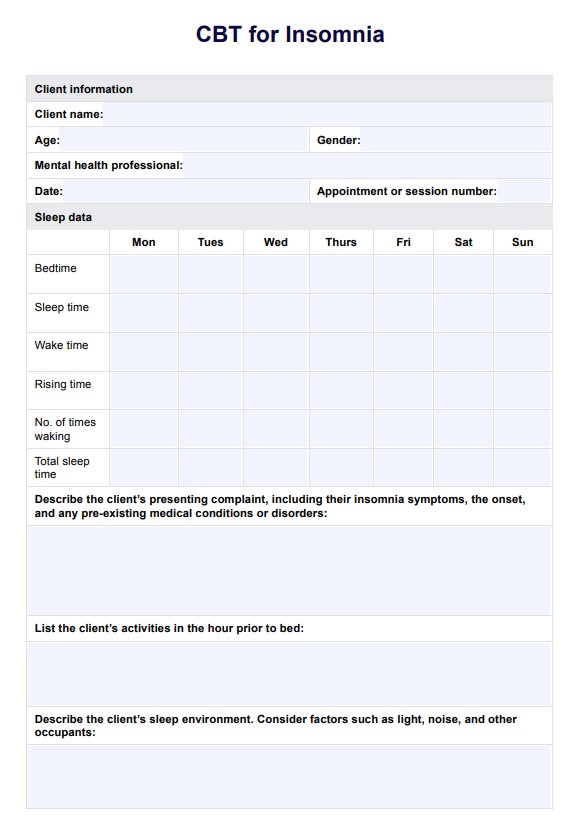Cognitive-behavioral therapy for Insomnia (CBT-I) is a structured therapeutic approach designed to address the thoughts, behaviors, and patterns contributing to insomnia. In combining psychological treatments with a behavioral perspective, CBT-I aims to implement good sleep habits, improve sleep quality, and decrease anxiety.

CBT For Insomnia PDF
Enhance your sleep quality with our downloadable PDF guide on cognitive behavioral therapy for insomnia, featuring effective strategies and practical exercises.
CBT For Insomnia PDF Template
Commonly asked questions
CBT-I has high efficacy for those experiencing adult insomnia, but individual responses vary. Professionals should use their clinical judgement to determine if CBT is a suitable approach for their client based on individual circumstances and personality factors.
When treating sleep disorders, the prescriptive components of clinical sleep medicine are combined with cognitive therapy in order to target the psychological factors that influence patient adherence. Behavioral and psychological treatments are also complementary as reducing anxiety surrounding sleep makes clients better able to comply with behavioral recommendations.
EHR and practice management software
Get started for free
*No credit card required
Free
$0/usd
Unlimited clients
Telehealth
1GB of storage
Client portal text
Automated billing and online payments











